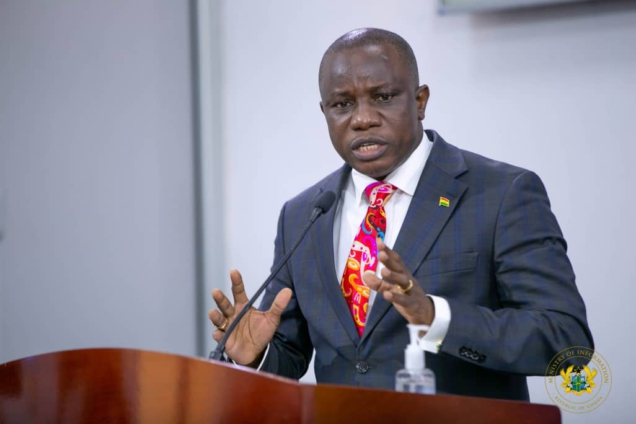Former Defence Minister Dominic Nitiwul has highlighted the critical need to build trust as a foundation for resolving the long-standing conflict in Bawku.
Speaking on Joy News’ PM Express on Tuesday, January 14, Nitiwul shared his experiences from his tenure and urged the government to prioritise confidence-building measures among stakeholders in the region.
The Bimbilla MP acknowledged the deep-seated mistrust between the Kusasis and Mamprusis, the two dominant factions in the Bawku conflict, noting that the roots of the crisis date back to the pre-independence era.
“This is not a problem that started yesterday. It goes back to before the 1950s and has escalated over the decades,” he stated.
He added that the situation in Bawku is unique and requires a delicate balance of firmness and fairness in government interventions.
“The government must be firm and fair in its dealings. If the people perceive weakness or a lack of fairness, they will exploit it. It’s just the nature of deeply-rooted conflicts,” Nitiwul explained.
Reflecting on his time as Defence Minister, Mr. Nitiwul admitted that achieving total peace in Bawku eluded his administration, despite their best efforts.
“We did everything possible to maintain peace, but we couldn’t achieve total peace, and that remains my regret,” he said.
He revealed that part of the challenge was balancing the use of force to maintain order without causing unnecessary harm to citizens.
“You cannot unleash the same level of force on your own people as you would on an invading force. It’s about enforcing peace while protecting lives,” he noted.
Mr. Nitiwul also pointed to criminal elements infiltrating the chieftaincy system in Bawku, exacerbating tensions and complicating resolution efforts.
The MP commended President John Mahama for prioritising the Bawku crisis and for his early commitment to addressing the issue.
“I’m happy the current president has immediately decided to take up the issue and has shown a strong promise to the people of Bawku,” he stated.
However, he stressed that lasting peace hinges on engendering trust.
“The first thing the government needs to do is to ensure that the two factions can trust the people it appoints to critical positions. If you appoint individuals that one side does not trust, it will worsen the situation,” he warned.
Mr. Nitiwul also called for a long-term strategy, emphasizing that the conflict cannot be resolved overnight. “This is not an issue you can sweep under the carpet. It requires sustained effort and genuine engagement with all stakeholders,” he said.
As Bawku remains a focal point for the new administration, Dominic Nitiwul’s insights offer valuable guidance.
He urged the government to engage with all factions, ensure fair representation in decision-making processes, and adopt a firm yet impartial stance to foster peace.
“Peace can be achieved,” he concluded optimistically. “But it requires trust, commitment, and fairness. That’s the only way forward for Bawku.”
ALSO READ:


